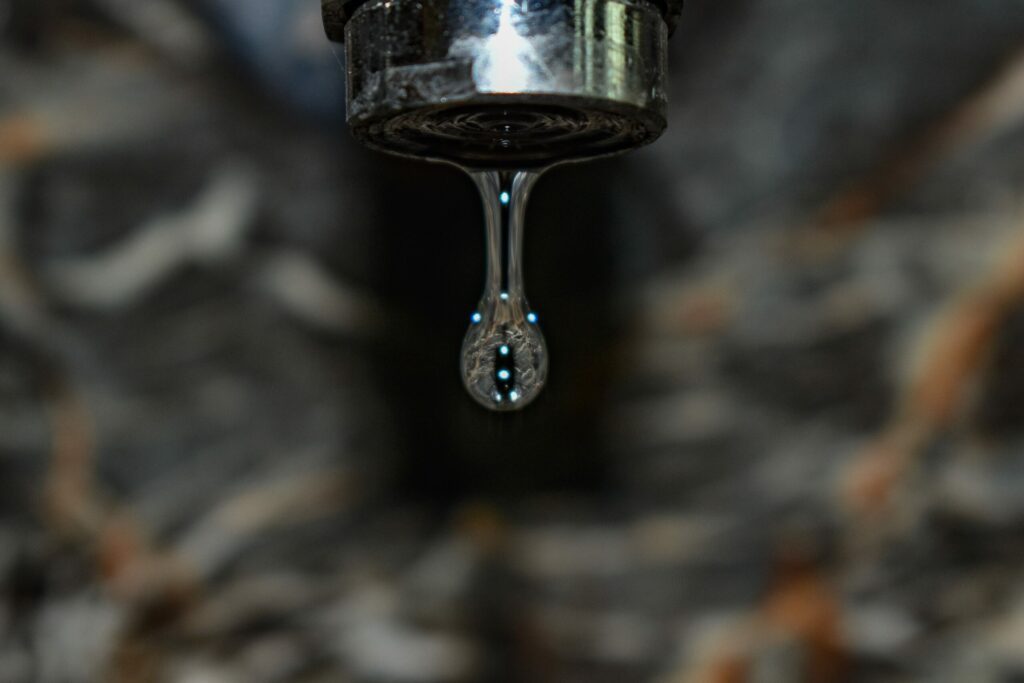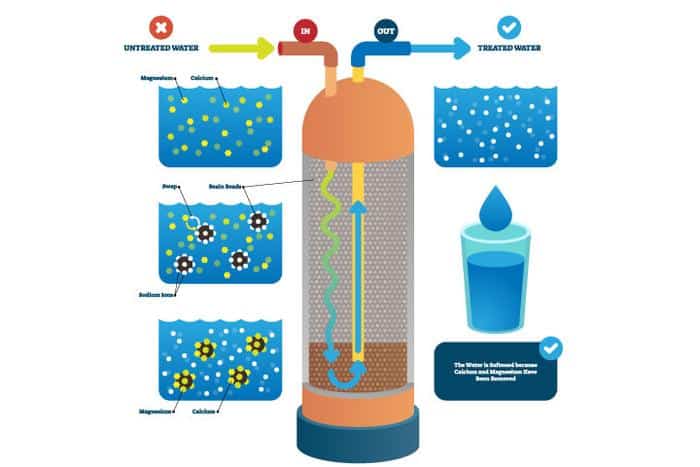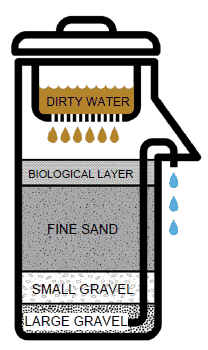Water is one natural resource that has become integral to our lives.
Table Of Contents
−- What is found in contaminated water?
- The right time to install a water treatment system
- What are the differences between water softener and water filter system
- Water softener vs. whole house filter
- Is a water softener necessary if you have a whole house filter?
- Q&A for water softener vs. water filter
- Our final thoughts
That’s why many households look for ways to get better home water. The water purification industry has made it easier to achieve this with two solutions; water softeners and water filters.

But sometimes, people get confused about which one to choose or if they need both.
This article will unpack the differences between these two water treatment systems. Then, we’ll lay down a comprehensive guide to decide if you’ll stick with one or go for both.
By taking advantage of the information provided here, you’ll have a clear decision process before you hit the store.
However, if you’re in most cities with a hard water problem, you might need both.
As we said, they’re both water treatment systems. And to help get a clear picture of their differences, we’ll start by highlighting what water treatment systems aim to remove from water.
With that said, let’s dive in
What is found in contaminated water?

We know what pure water is basically; No funny tastes, no colors. Instead, transparent and refreshing.
On a chemical level, that translates to simply hydrogen and oxygen (H²O).
But sometimes, unwanted guests can invade your water and ruin your experience.
We’ll review possible contaminants that can come from your water through your faucets.
These are basically what water treatments search for, so they’re removed.
Here’s a list of what water may contain:
- Magnesium
- Chlorine
- Iron
- Rust
- Sulfide
- Bacteria
- Limescale
- Industrial waste
- Pesticides
The right time to install a water treatment system
This ultimately boils down to your overall water quality experience.
Depending on what is in your water, you can decide whether to go for a water softener, water filter, or both.
Another factor to consider is the differences between them. This is a great way to understand better how to tackle your household water issues.
What are the differences between water softener and water filter system
So, you’ve figured your water quality is where you want it to be. Then, you decide it is time to get a water treatment system for your situation.
Well, to help you make an informed decision, we’ll take a deep dive into the key differences between them:
They tackle different substances.
The way water softeners and water filters handle water treatment is different.
Water softeners fix hard water by making it soft. They remove hardness-causing minerals like magnesium and calcium.
Their primary objective is ensuring you never run out of soft water all day.
Water Filters cover a broader spectrum of contaminants. They go after unwanted compounds like dirt, sand, sediments, and larger particles.
They’re also different types of water filters. For example, carbon filters reduce chlorine and odor in water.
All water softeners are water filters, but not all water filters are softeners. A softener is a hard water filter.
They run on different technology.
Water softeners utilize salt and ion exchange resins to remove calcium and magnesium ions from water. They work by replacing these ions with sodium ions.
On the other end, since water filters cover a wide range, they employ various water treatment techniques to purify water.
Pollutants are thrown out using advanced media beds through a step-by-step process of oxidation to catalytic conversion etc.
Also, activated carbon filtration is an effective method for tackling chlorine and unpleasant tastes.
Maintenance requirements are different.
If you want to get the best out of your water treatment systems, you must take care of them.
Salt-based water softeners need to be maintained regularly. Because they use salt to perform, the brine tanks must be refilled with salt pellets each time they run out.
Salt-free water softeners need less maintenance but can be damaged by oils.
On the other hand, are the water filtration systems. These require very little maintenance. You don’t need to worry about checking up on them regularly. However, they can be quite expensive to install.

Water softener vs. whole house filter
Now, you know the difference between a water softener and a water filter. However, there’s something called a whole house filter.
Water filters are usually installed in one part of the house, like the kitchen. This means that only water in the kitchen will go through the filtration process.
A whole house filter takes things a step further. It’s installed at the point – of – water entry into the house. This way, all taps in every room will produce non – contaminated water.

Is a water softener necessary if you have a whole house filter?
It boils down to the kind of whole house filter you intend to buy. A water filter that promises to perform the roles of a water softener by removing calcium and magnesium will be a one-stop fix for you.
However, to get the best quality out of your water, we suggest you install both a softener and a filter.
This way, the water softener takes care of minerals like calcium that’ll be difficult for a filter. And on the other hand, the water filter tackles biological contaminants like bacteria that a softener isn’t cut out for.
Q&A for water softener vs. water filter
Running out of time and need a quick review? Then, we put together a short resource to shape your decision.
What does a water softener remove?
Do water softeners filter water?
Does a water softener remove chlorine?
Our final thoughts
Water filters cover a wide range of contaminants. And most of them are uniquely designed to attract and remove specific contaminants.
Water softeners are pretty straightforward. They’re created to eliminate the effects of magnesium and calcium in hard water.

Jay
Jay is a health and wellness enthusiast with expertise in water quality and nutrition. As a knowledgeable advocate for holistic well-being, Jay successfully manages Type 2 Diabetes through informed lifestyle choices. Committed to sharing reliable and authoritative insights, Jay combines firsthand experience with a passion for enhancing health."
